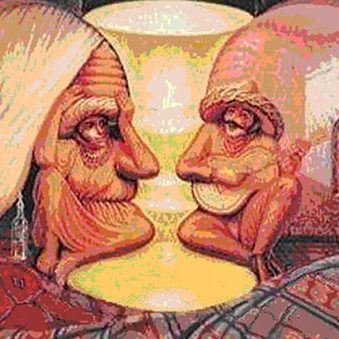After meeting with Peter Philippson

This week the Lodz Gestalt School hosted Peter Philipson, who talked about the Activity Principle in Gestalt therapy.
During the webinar and question/answer session, we focused on the topic of self theory in Gestalt. The activity principle refers to the “living” self, which in the Gestalt approach is neither a set of qualities nor any structure, but a process of continuous becoming and reacting to the environment. As self, we can define what is an individual’s current style of adaptation in the field. And whenever we ask about the self, we ask about it in the here and now, in this plotted moment, in this specific moment, not about something objectively, permanently existing. This is related to the phenomenological perception of the world. It also implies a way of looking at change in psychotherapy and psychopathology. We are not concerned with changing one structure for another, better one… but rather seeking a better perspective of understanding how to adapt to the environment. It’s about looking at reality creatively and seeing opportunities. The process of change occurs immediately. When we look at a familiar graphic where we see two faces or a vase, we switch perceptually in an instant. It is impossible to see the face and the vase at the same time, but you can “switch” very quickly. The Gestalt therapist helps the client discover the existence of different perspectives of viewing reality and helps to see that it can be done very quickly. Change is therefore about realizing choice and the power of possibility. The therapist not only looks for good experiences in the past, but mainly creates conditions for experimentation in new ways of interacting with the wider environment. So the activity principle is a living process of continuous becoming. It is not legitimate to ask what it is becoming, because the moment the question is asked, the answer to it becomes obsolete. The comparison that comes to mind here is that a Gestalt therapist is like Heraclitus, who perceives that everything flows and each time one enters the same and yet a different river… So many “hot” reflections….
We are looking forward to the experiential part of the meeting with Peter Philipson, which we have scheduled for the end of November in Lodz, Poland.
At the end of the webinar, we received two gifts from Peter, which we are sharing with anyone who is interested. These are links to IG Fest(www.ig-fest.org) an organization founded by individuals such as Peter Philippson (UK), Gianni Francesetti (Italy), Michela Gecele (Italy), Jan Roubal (Czech Republic), Dan Bloom (USA), Julianne Appel-Opper (Germany) and the Manchester Gestalt Centre(www.mgc.org.uk). Both links lead to a mine of Gestalt knowledge. There you can find webinars, articles, interviews and videos on what is current and alive in Gestalt theory and practice.

